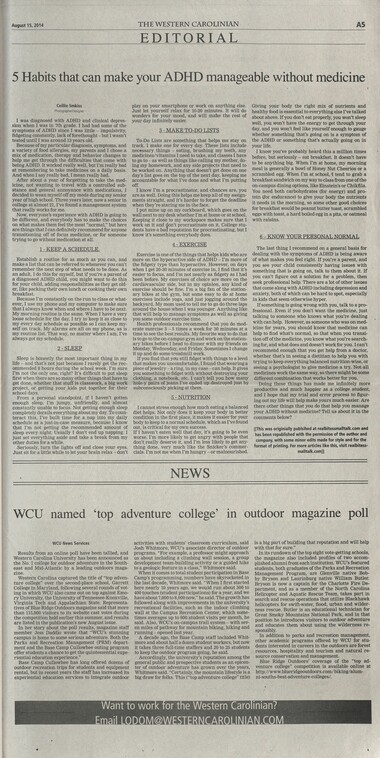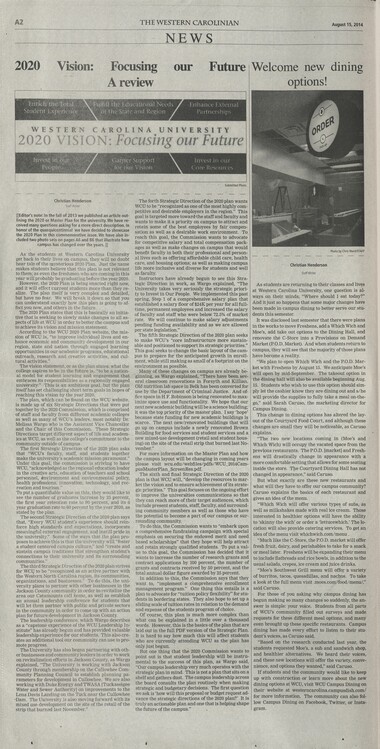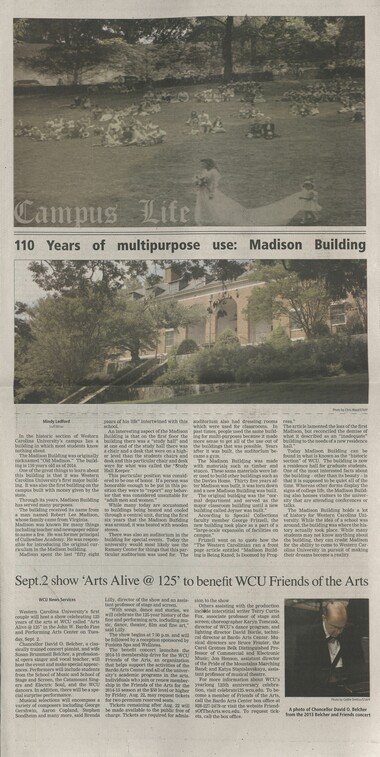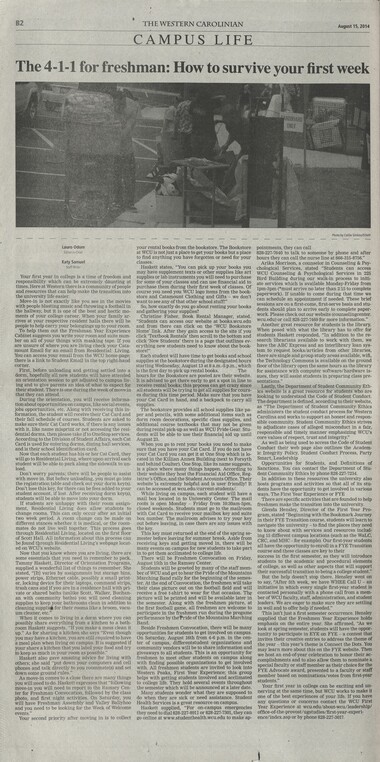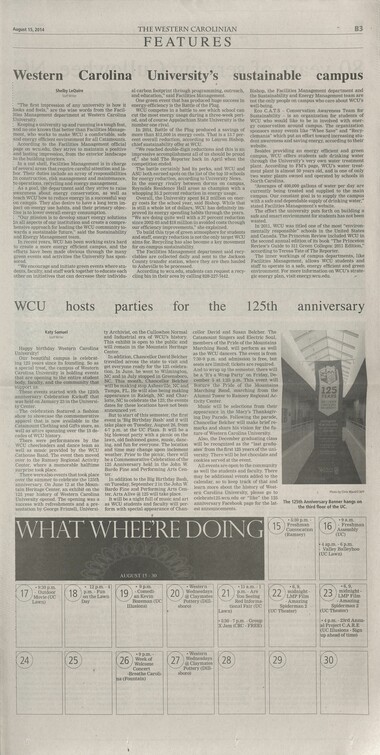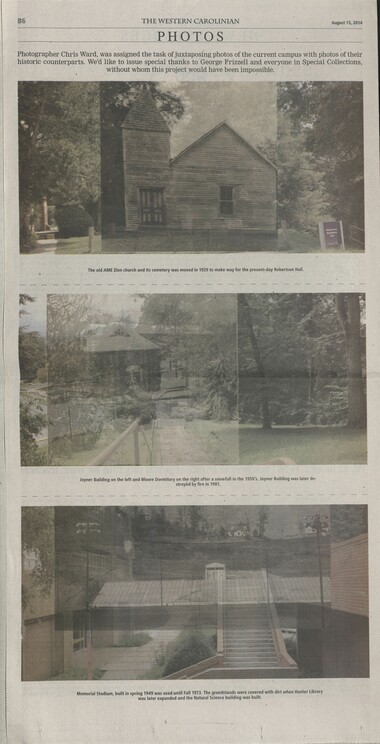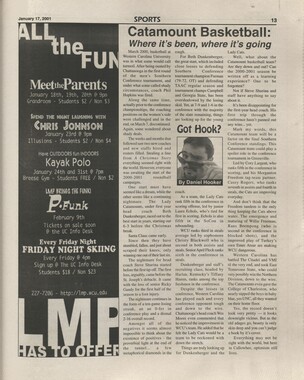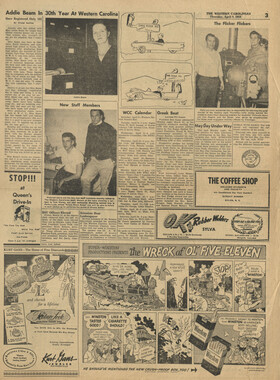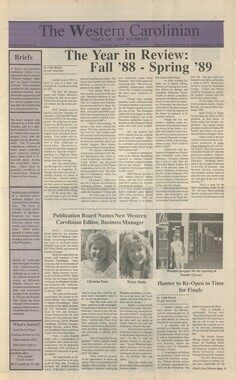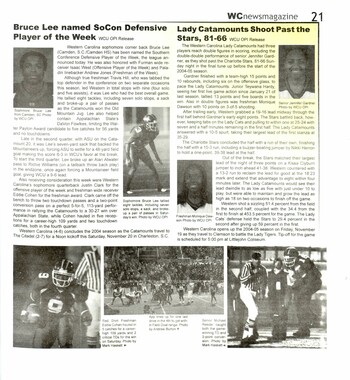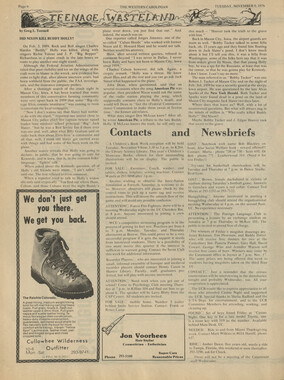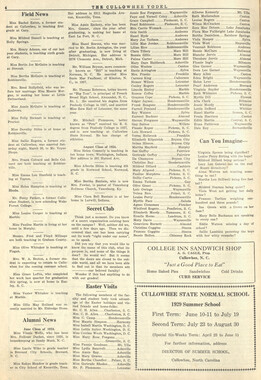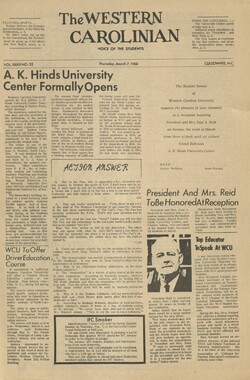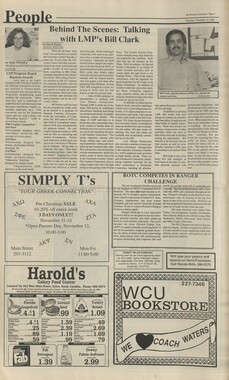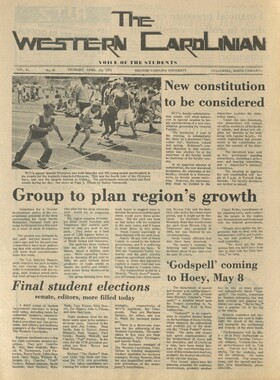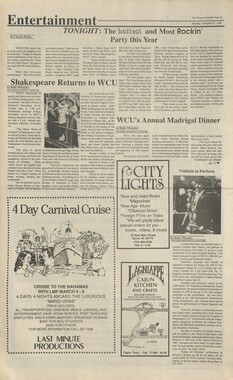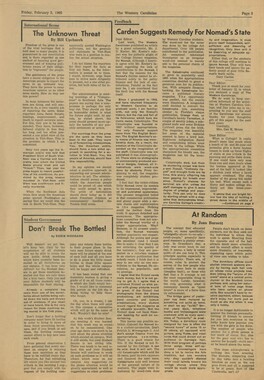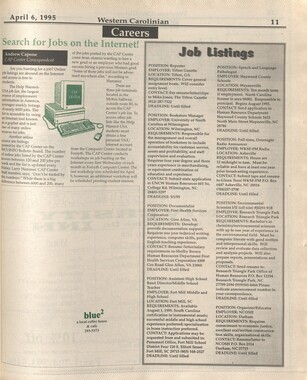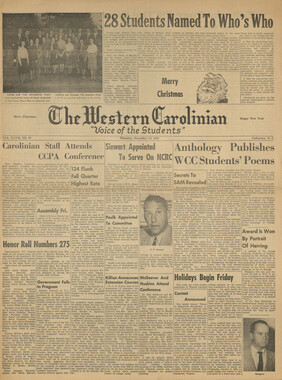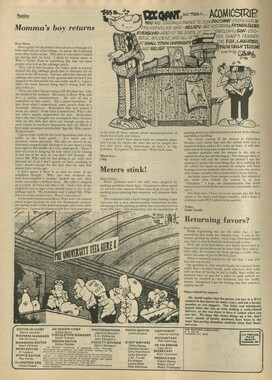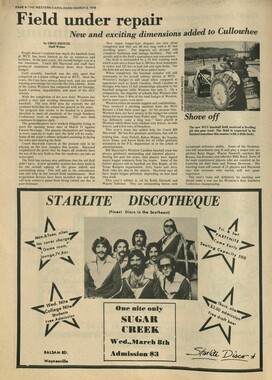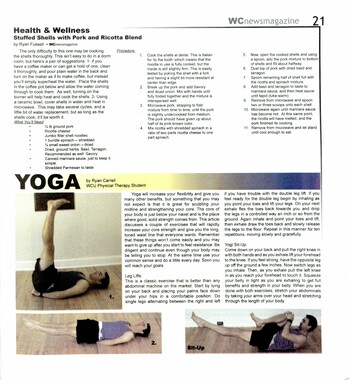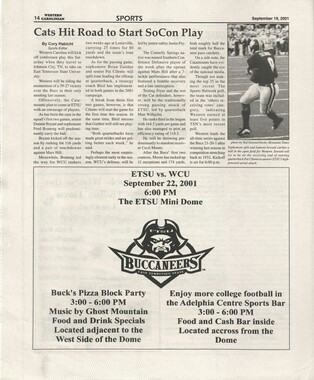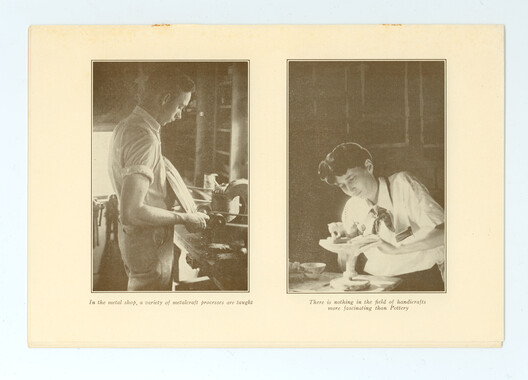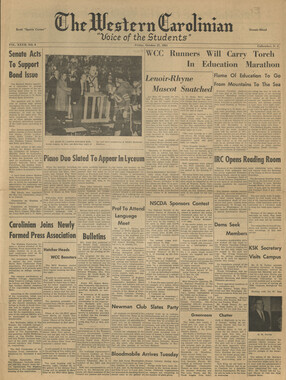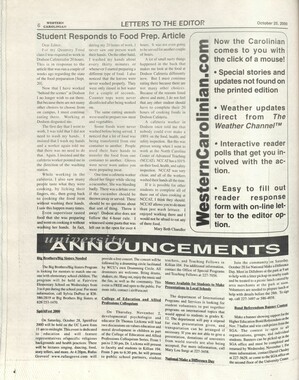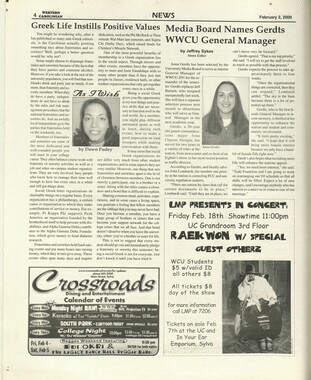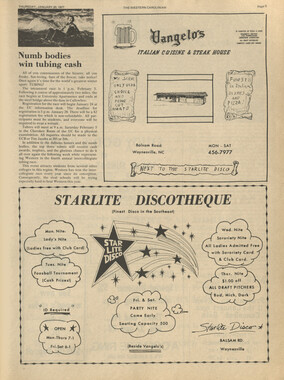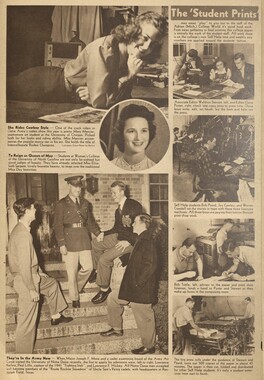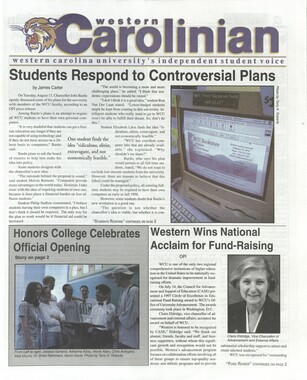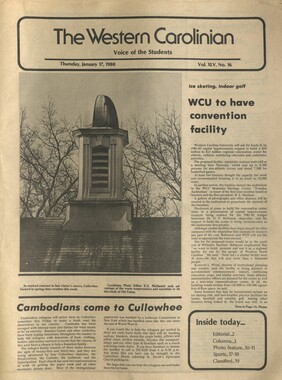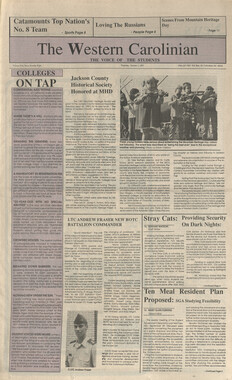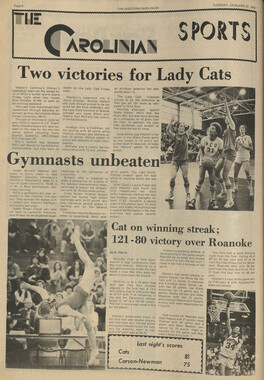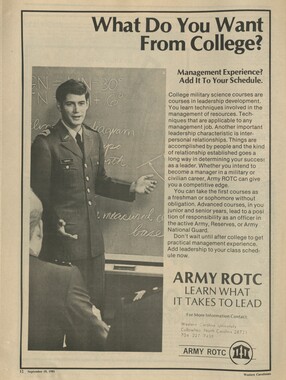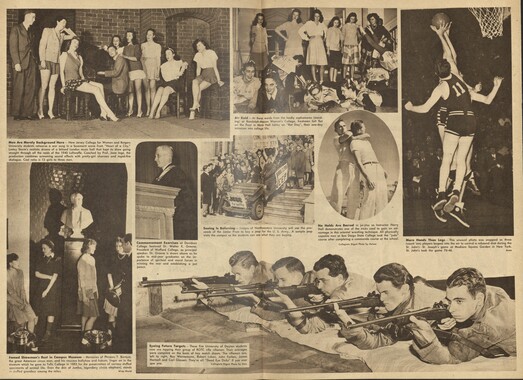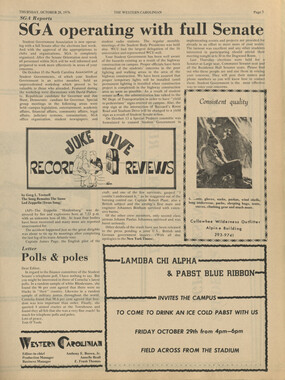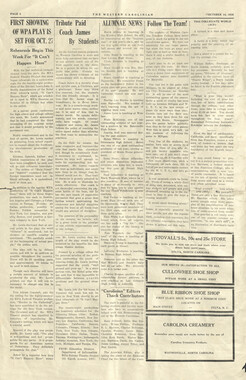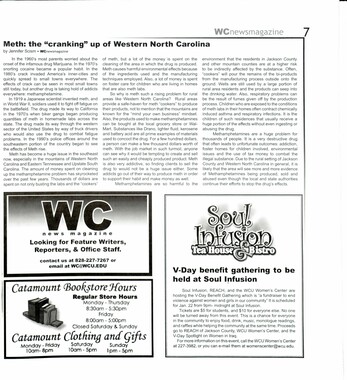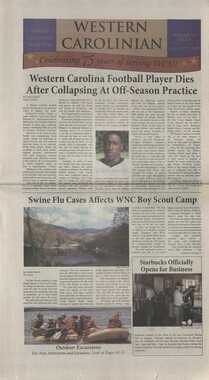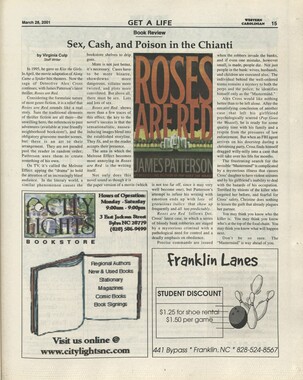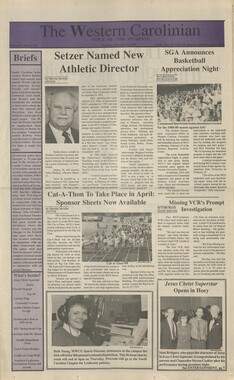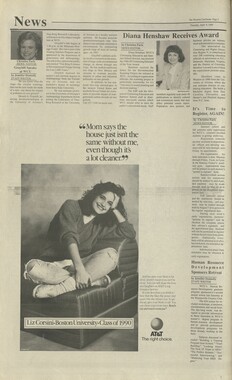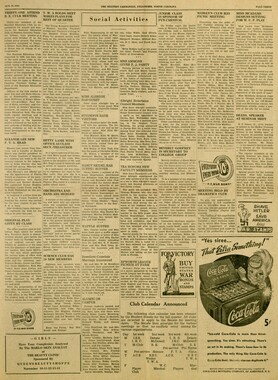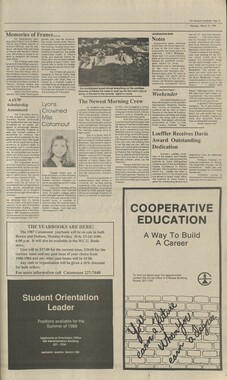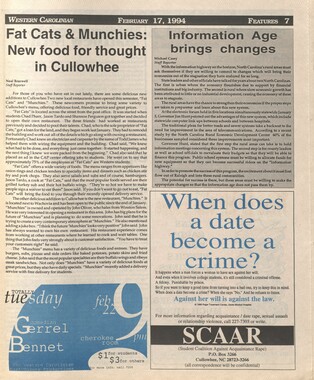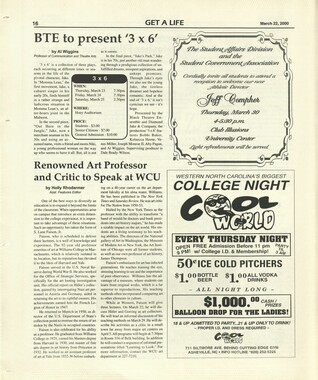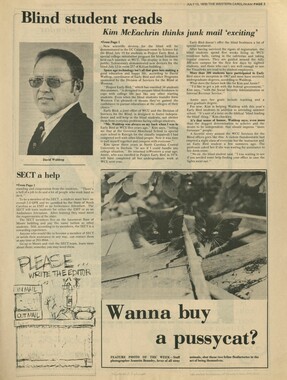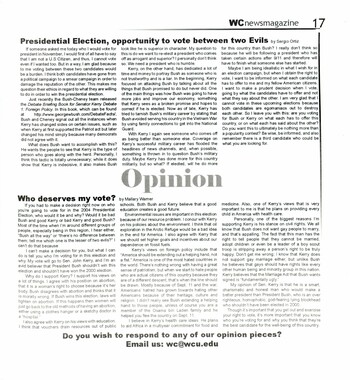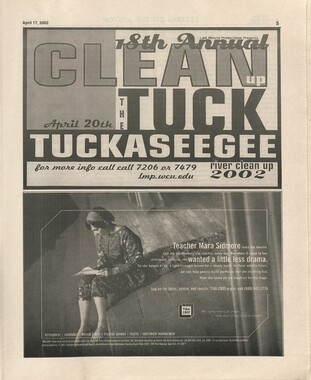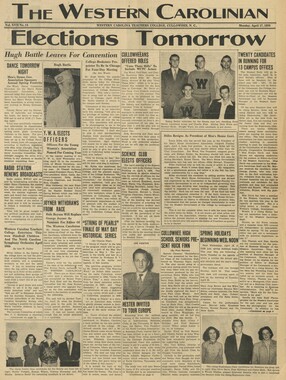Western Carolina University (21)
View all
- Canton Champion Fibre Company (2308)
- Cherokee Traditions (291)
- Civil War in Southern Appalachia (165)
- Craft Revival (1942)
- George Masa Collection (137)
- Great Smoky Mountains - A Park for America (2900)
- Highlights from Western Carolina University (422)
- Horace Kephart (941)
- Journeys Through Jackson (159)
- LGBTQIA+ Archive of Jackson County (85)
- Oral Histories of Western North Carolina (314)
- Picturing Appalachia (6797)
- Stories of Mountain Folk (413)
- Travel Western North Carolina (153)
- Western Carolina University Fine Art Museum Vitreograph Collection (129)
- Western Carolina University Herbarium (92)
- Western Carolina University: Making Memories (738)
- Western Carolina University Publications (2491)
- Western Carolina University Restricted Electronic Theses and Dissertations (146)
- Western North Carolina Regional Maps (71)
- World War II in Southern Appalachia (131)
University of North Carolina Asheville (6)
View all
- Allanstand Cottage Industries (62)
- Appalachian National Park Association (53)
- Bennett, Kelly, 1890-1974 (1463)
- Berry, Walter (76)
- Brasstown Carvers (40)
- Carver, George Washington, 1864?-1943 (26)
- Cathey, Joseph, 1803-1874 (1)
- Champion Fibre Company (233)
- Champion Paper and Fibre Company (297)
- Cherokee Indian Fair Association (16)
- Cherokee Language Program (22)
- Crowe, Amanda (40)
- Edmonston, Thomas Benton, 1842-1907 (7)
- Ensley, A. L. (Abraham Lincoln), 1865-1948 (275)
- Fromer, Irving Rhodes, 1913-1994 (70)
- George Butz (BFS 1907) (46)
- Goodrich, Frances Louisa (120)
- Grant, George Alexander, 1891-1964 (96)
- Heard, Marian Gladys (60)
- Kephart, Calvin, 1883-1969 (15)
- Kephart, Horace, 1862-1931 (313)
- Kephart, Laura, 1862-1954 (39)
- Laney, Gideon Thomas, 1889-1976 (439)
- Masa, George, 1881-1933 (61)
- McElhinney, William Julian, 1896-1953 (44)
- Niggli, Josephina, 1910-1983 (10)
- North Carolina Park Commission (105)
- Osborne, Kezia Stradley (9)
- Owens, Samuel Robert, 1918-1995 (11)
- Penland Weavers and Potters (36)
- Roberts, Vivienne (15)
- Roth, Albert, 1890-1974 (142)
- Schenck, Carl Alwin, 1868-1955 (1)
- Sherrill's Photography Studio (2565)
- Southern Highland Handicraft Guild (127)
- Southern Highlanders, Inc. (71)
- Stalcup, Jesse Bryson (46)
- Stearns, I. K. (213)
- Thompson, James Edward, 1880-1976 (226)
- United States. Indian Arts and Crafts Board (130)
- USFS (683)
- Vance, Zebulon Baird, 1830-1894 (1)
- Weaver, Zebulon, 1872-1948 (58)
- Western Carolina College (230)
- Western Carolina Teachers College (282)
- Western Carolina University (2008)
- Western Carolina University. Mountain Heritage Center (18)
- Whitman, Walt, 1819-1892 (10)
- Wilburn, Hiram Coleman, 1880-1967 (73)
- Williams, Isadora (3)
- Cain, Doreyl Ammons (0)
- Crittenden, Lorraine (0)
- Rhodes, Judy (0)
- Smith, Edward Clark (0)
- Appalachian Region, Southern (2929)
- Asheville (N.C.) (1944)
- Avery County (N.C.) (26)
- Blount County (Tenn.) (195)
- Buncombe County (N.C.) (1680)
- Cherokee County (N.C.) (283)
- Clay County (N.C.) (556)
- Graham County (N.C.) (238)
- Great Smoky Mountains National Park (N.C. and Tenn.) (525)
- Haywood County (N.C.) (3571)
- Henderson County (N.C.) (70)
- Jackson County (N.C.) (4917)
- Knox County (Tenn.) (35)
- Knoxville (Tenn.) (13)
- Lake Santeetlah (N.C.) (10)
- Macon County (N.C.) (420)
- Madison County (N.C.) (216)
- McDowell County (N.C.) (39)
- Mitchell County (N.C.) (135)
- Polk County (N.C.) (35)
- Qualla Boundary (982)
- Rutherford County (N.C.) (78)
- Swain County (N.C.) (2185)
- Transylvania County (N.C.) (270)
- Watauga County (N.C.) (12)
- Waynesville (N.C.) (86)
- Yancey County (N.C.) (72)
- Aerial Photographs (3)
- Aerial Views (60)
- Albums (books) (4)
- Articles (1)
- Artifacts (object Genre) (228)
- Bibliographies (1)
- Biography (general Genre) (2)
- Cards (information Artifacts) (38)
- Clippings (information Artifacts) (191)
- Copybooks (instructional Materials) (3)
- Crafts (art Genres) (622)
- Depictions (visual Works) (21)
- Design Drawings (1)
- Drawings (visual Works) (185)
- Envelopes (73)
- Exhibitions (events) (1)
- Facsimiles (reproductions) (1)
- Fiction (general Genre) (4)
- Financial Records (12)
- Fliers (printed Matter) (67)
- Glass Plate Negatives (381)
- Guidebooks (2)
- Internegatives (10)
- Interviews (815)
- Land Surveys (102)
- Letters (correspondence) (1013)
- Manuscripts (documents) (618)
- Maps (documents) (177)
- Memorandums (25)
- Minutes (administrative Records) (59)
- Negatives (photographs) (6090)
- Newsletters (1290)
- Newspapers (2)
- Notebooks (8)
- Occupation Currency (1)
- Paintings (visual Works) (1)
- Pen And Ink Drawings (1)
- Periodicals (193)
- Personal Narratives (10)
- Photographs (12976)
- Plans (maps) (1)
- Poetry (5)
- Portraits (4568)
- Postcards (329)
- Programs (documents) (181)
- Publications (documents) (2443)
- Questionnaires (65)
- Relief Prints (26)
- Sayings (literary Genre) (1)
- Scrapbooks (282)
- Sheet Music (2)
- Slides (photographs) (402)
- Songs (musical Compositions) (2)
- Sound Recordings (796)
- Specimens (92)
- Speeches (documents) (18)
- Tintypes (photographs) (8)
- Transcripts (322)
- Video Recordings (physical Artifacts) (23)
- Text Messages (0)
- A.L. Ensley Collection (275)
- Appalachian Industrial School Records (7)
- Appalachian National Park Association Records (336)
- Axley-Meroney Collection (2)
- Bayard Wootten Photograph Collection (20)
- Bethel Rural Community Organization Collection (7)
- Blumer Collection (5)
- C.W. Slagle Collection (20)
- Canton Area Historical Museum (2110)
- Carlos C. Campbell Collection (462)
- Cataloochee History Project (64)
- Cherokee Studies Collection (4)
- Daisy Dame Photograph Album (5)
- Daniel Boone VI Collection (1)
- Doris Ulmann Photograph Collection (112)
- Elizabeth H. Lasley Collection (1)
- Elizabeth Woolworth Szold Fleharty Collection (4)
- Frank Fry Collection (95)
- George Masa Collection (173)
- Gideon Laney Collection (452)
- Hazel Scarborough Collection (2)
- Hiram C. Wilburn Papers (28)
- Historic Photographs Collection (236)
- Horace Kephart Collection (861)
- Humbard Collection (33)
- Hunter and Weaver Families Collection (1)
- I. D. Blumenthal Collection (4)
- Isadora Williams Collection (4)
- Jesse Bryson Stalcup Collection (47)
- Jim Thompson Collection (224)
- John B. Battle Collection (7)
- John C. Campbell Folk School Records (80)
- John Parris Collection (6)
- Judaculla Rock project (2)
- Kelly Bennett Collection (1482)
- Love Family Papers (11)
- Major Wiley Parris Civil War Letters (3)
- Map Collection (12)
- McFee-Misemer Civil War Letters (34)
- Mountain Heritage Center Collection (4)
- Norburn - Robertson - Thomson Families Collection (44)
- Pauline Hood Collection (7)
- Pre-Guild Collection (2)
- Qualla Arts and Crafts Mutual Collection (12)
- R.A. Romanes Collection (681)
- Rosser H. Taylor Collection (1)
- Samuel Robert Owens Collection (94)
- Sara Madison Collection (144)
- Sherrill Studio Photo Collection (2558)
- Smoky Mountains Hiking Club Collection (616)
- Stories of Mountain Folk - Radio Programs (374)
- The Reporter, Western Carolina University (510)
- Venoy and Elizabeth Reed Collection (16)
- WCU Gender and Sexuality Oral History Project (32)
- WCU Mountain Heritage Center Oral Histories (25)
- WCU Oral History Collection - Mountain People, Mountain Lives (71)
- WCU Students Newspapers Collection (1923)
- Western North Carolina Tomorrow Black Oral History Project (69)
- William Williams Stringfield Collection (2)
- Zebulon Weaver Collection (109)
- African Americans (390)
- Appalachian Trail (35)
- Artisans (521)
- Cherokee art (84)
- Cherokee artists -- North Carolina (10)
- Cherokee language (21)
- Cherokee pottery (101)
- Cherokee women (208)
- Church buildings (190)
- Civilian Conservation Corps (U.S.) (111)
- College student newspapers and periodicals (2012)
- Dams (108)
- Dance (1023)
- Education (222)
- Floods (61)
- Folk music (1015)
- Forced removal, 1813-1903 (2)
- Forest conservation (220)
- Forests and forestry (1196)
- Gender nonconformity (4)
- Great Smoky Mountains National Park (N.C. and Tenn.) (181)
- Hunting (46)
- Landscape photography (25)
- Logging (119)
- Maps (83)
- Mines and mineral resources (9)
- North Carolina -- Maps (18)
- Paper industry (38)
- Postcards (255)
- Pottery (135)
- Railroad trains (72)
- Rural electrification -- North Carolina, Western (3)
- School integration -- Southern States (2)
- Segregation -- North Carolina, Western (5)
- Slavery (5)
- Sports (452)
- Storytelling (243)
- Waterfalls -- Great Smoky Mountains (N.C. and Tenn.) (66)
- Weaving -- Appalachian Region, Southern (280)
- Wood-carving -- Appalachian Region, Southern (328)
- World War, 1939-1945 (173)
Western Carolinian Volume 80 Number 01
Item
Item’s are ‘child’ level descriptions to ‘parent’ objects, (e.g. one page of a whole book).
-
-
RT ES August 15, 2014 THE WESTERN CAROLINIAN AS EDITORIAL 5 Habits that can make your ADHD manageable without medicine Ceillie Smkiss Photographer/Designer* I was diagnosed with ADHD and clinical depres- sion when I was in 7th grade. I had had some of the symptoms of ADHD since I was little impulsivity, fidgeting constantly, lack of forethought but I wasnt tested until I was around 13 years old. Because of my particular diagnosis, symptoms, and a variety of food allergies, my parents and I chose a mix of medication, therapy and behavior changes to help me get through the difficulties that come with being ADHD. It worked really well, but Im really bad at remembering to take medicines on a daily basis. And when I say really bad, I mean really bad. After about a year of forgetting to take the med- icine, not wanting to travel with a controlled sub- stance and general annoyance with medications, I decided to wean myself off my meds during my senior year of high school. Three years later, now a senior in college at almost 21, Ive found a management system that really works for me. Now, everyones experience with ADHD is going to be different, and everybody has to make the choices on what makes them feel the most normal, but here are things that I can definitely recommend for anyone transitioning off of focus medicine, or for someone trying to go without medication at all. 1- KEEP A SCHEDULE. Establish a routine for as much as you can, and make a list that can be referred to whenever you cant remember the next step of what needs to be done. As an adult, I do this for myself, but if youre a parent of a diagnosed ADHD child, you might want to do this for your child, adding responsibilities as they get old- er, like packing their own lunch or cooking their own breakfast. Because Im constantly on the run to class or what- ever, I use my phone and my computer to make sure that I always know when and where I have to be next. My morning routine is the same. When I have a very loose schedule for the day, I try to keep it as close to _ my every day schedule as possible so I can keep my- self on. track. My alarms are all on my phone, as is my routine list. That way, no matter where I am, Ive always got my schedule. 2 - SLEEP Sleep is honestly the most important thing in my life and thats not just because I rarely get the rec- ommended 8 hours during the school week. Im sure Im not the only one, right? Its difficult to put sleep first when there are so many other things that have to get done, whether that stuff is classwork, a big work project, or getting your kids put together for their school days. From a personal standpoint, if I haven't gotten enough sleep, Im jumpy, unfriendly, and almost constantly unable to focus. Not getting enough sleep completely derails everything about my day. To coun- 4 teract this, Ive built time for a nap into my daily schedule as a just-in-case measure, because I know that Im not getting the recommended amount of sleep every night. Usually I dont end up napping. I just set everything aside and take a break from my other duties for a while. Seriously, turn the lights off and close your eyes. Just sit for a little while to let your brain relax dont play on your smartphone or work on anything else. Just let yourself relax for 10-20 minutes. It will do wonders for your mood, and will make the rest of your day infinitely easier. 3- MAKE TO-DO LISTS To-Do Lists are something that helps me stay on track. I make one for every day. These lists include necessary things eating, brushing my teeth, any medicines/vitamins I need to take, and classes I have to go to as well as things like calling my mother, do- ing my homework, and any side projects that need to be worked on. Anything that doesnt get done on one days list goes on the top of the next day, keeping me accountable for what Ive done and what Im putting off. I know Im a procrastinator, and chances are, you are as well. Doing this helps me keep all of my assign- ments straight, and its harder to forget the deadline . when theyre staring me in the face. I put mine up on my corkboard, which goes on the wall next to my desk whether Im at home or at school. Keeping it close to my workspace makes sure that I work on it and dont procrastinate on it. College stu- dents have a bad reputation for procrastinating, but I know its something everybody does. 4- EXERCISE _ Exercise is one of the things that helps kids who are more on the hyperactive side of ADHD Im more of the fidgety type than hyperactive. However, on days when I get 20-30 minutes of exercise in, I find that its easier to focus, and Im not nearly as fidgety as I had been before. My exercises of choice are more on the cardiovascular side, but in my opinion, any kind of exercise should be fine. Im a big fan of the station- ary bikes at the gym, but some easy to do at home exercises include yoga, and just jogging around the backyard. My mom used to tell me to go do three laps around the house when I was younger. Anything like that will help to manage symptoms as well as giving you some outdoor exercise time. Health professionals recommend that you do mod- erate exercise 3 5 times a week for 30 minutes ata time to see the best results. My favorite way to do that is to go to the on-campus gym and work on the station- ary bikes before I head to dinner with my friends on Monday, Wednesday, and Friday. Sometimes I change it up and do some treadmill work. If you find that you still fidget with things to a level that makes you uncomfortable, I found that wearing a piece of jewelry aring, in my casecan help. It gives you something to fidget with without destroying your clothing, a notebook, etc. I cant tell you how many hole-y pairs of jeans Ive ended up destroyed just by subconsciously picking at them. 5 - NUTRITION Icannot stress enough how much eating a balanced diet helps. Not only does it keep your body in better condition in the first place, it makes it easier for your body to keep to a normal schedule, which as Ive found out, is critical for my own success. If I havent eaten well that day, its going to be even worse. Im more likely to get angry with people that dont really deserve it, and Im less likely to get any- thing done, very much like the Snickers commer- cials. Im not me when Im hungry or malnourished. Giving your body the right mix of nutrients and healthy food is essential to everything else Ive talked about above. If you dont eat properly, you wont sleep well, you wont have the energy to get through your day, and you wont feel like yourself enough to gauge whether something thats going on is a symptom of the ADHD or ae thats actually going on in your life. I know youve probaly heard this a million times before, but seriously eat breakfast. It doesnt have to be anything big. When Im at home, my morning meal is generally a bowl of Honey Nut Cheerios or a scrambled egg. When Im at school, I tend to grab a breakfast sandwich on my way to class from one of the on-campus dining options, like Einsteins or Chikfila. You need both carbohydrates (for energy) and pro- tein (or endurance) to give your body the nutrients it needs in the morning, so some other good choices for breakfast would be peanut butter toast, scrambled eggs with toast, a hard boiled egg in a pita, or oatmeal with raisins. 6-KNOW YOUR PERSONAL NORMAL The last thing I recommend on a general basis for dealing with the symptoms of ADHD is being aware of what makes you feel right. If youre a parent, and you see your child consistently having issues with something that is going on, talk to them about it. If you cant figure out a solution for a problem, then seek professional help. There are a lot of other issues that come along with ADHD including depression and. anxiety, both of which can be hard to spot, especially in kids that seem otherwise hyper. If something is going wrong with you, talk to a pro- fessional. Even if you dont want the medicine, just talking to someone who knows what you're dealing with can help. However, as someone who was on med- icine for years, you should know that medicine can help to find whats normal, so that when you transi- tion off of the medicine, you know what you're search- ing for, and what does and doesnt work for you. I cant recommend enough that you get help from a doctor, whether thats in seeing a dietitian to help you with trying to keep everything balanced nutrition-wise, or seeing a psychologist to give medicine a try. Not all medicines work the same way, so there might be some different combination that works better for you. Doing these things has made me infinitely more productive and much happier as-a college student, and I hope that my trial and error process to figur- ing out my life will help make yours much easier. Are there other things that you do that help you manage your ADHD without medicine? Tell us about it in the comments below? [[This was originially publsihed at realbitessmalltalk.com and has been republished with the permission of the author and company, with some minor edits made for style and for the format of printing. For more articles like this, visit realbitess- malltalk.com]] NEWS WCU named top adventure college in outdoor magazine poll WCU News Services Results from an online poll have been tallied, and Western Carolina University has been announced as the No. 1 college for outdoor adventure in the South- east and Mid-Atlantic by a leading outdoors maga- zine. Western Carolina captured the title of top adven- ture college over the second-place school, Garrett College in Maryland, following several rounds of vot- ing in which WCU also came out on top against Emo- ry University, the University of Tennessee-Knoxville, Virginia Tech and Appalachian State. Representa- tives of Blue Ridge Outdoors magazine said that more than 115,000 visitors to its website cast votes during the competition held earlier this summer, and results are listed in the publications new August issue. In her story about the poll results, magazine staff member Jess Daddio wrote that WCUs stunning campus is home to some serious adventure. Both the Parks and Recreation Management (PRM) depart- ment and the Base Camp Cullowhee outing program offer students a chance to get the quintessential expe- riential education experience. Base Camp Cullowhee has long offered dozens of outdoor recreation trips for students and equipment rental, but in recent years the staff has increased its experiential education services to integrate outdoor Want to work activities with students classroom curriculum, said Josh Whitmore, WCUs associate director of outdoor programs. For example, a professor might approach us about including a climbing wall session, a group development team-building activity or a guided hike to a geologic feature in a class, Whitmore said. When it comes to total student participation in Base Camps programming, numbers have skyrocketed in the last decade, Whitmore said. When IJ first started here nearly 10 years ago, we would run about 300 to 400 touches (student participations) for a year, and we have about 7,000 to 8,000 now, he said. The growth has followed along with improvements in the universitys recreational facilities, such as the indoor climbing wall at the Campus Recreation Center, which some- times averages up to 800 student visits per month, he said. Also, WCUs on-campus trail system with sev- en miles of pathway for mountain biking, hiking and running opened last year. A decade ago, the Base Camp staff included Whit- more and about half a dozen student workers, but now it takes three full-time staffers and 20 to 25 students to keep the outdoor program going, he said. Accordingly, the universitys reputation among the general public and prospective students as an epicen- ter of outdoor adventure has grown over the years, Whitmore said. Certainly, the mountain lifestyle is a big draw for folks. This (top adventure college title) | 0 4 is a big part of building that reputation and will help with that for sure. In its rundown of the top eight vote-getting schools, the magazine also included profiles of two accom- plished alumni from each institution. WCUs featured students, both graduates of the Parks and Recreation Management Program, are Glenville native Bob- by Bryson and Laurinburg native William Butler. Bryson is now a captain for the Charlotte Fire De- partment, and as a member of the North Carolina Helicopter and Aquatic Rescue Team, takes part in search and rescue operations that utilize Blackhawk helicopters for swift-water, flood, urban and wilder- ness rescue. Butler is an educational technician for Great Smoky Mountains National Park, and in that position he introduces visitors to outdoor adventure -and educates them about using the wilderness re- | sponsibly. In addition to parks and recreation management, other academic programs offered by WCU for stu- dents interested in careers in the outdoors are forest resources, hospitality and tourism and natural re- source conservation and management. -Blue Ridge Outdoors coverage of the top ad- venture college competition is available online at http://www.blueridgeoutdoors.com/biking/alum- ni-souths-best-adventure-colleges/. * * Lidl
Object
Object’s are ‘parent’ level descriptions to ‘children’ items, (e.g. a book with pages).
-
The Western Carolinian is Western Carolina University's student-run newspaper. The paper was published as the Cullowhee Yodel from 1924 to 1931 before changing its name to The Western Carolinian in 1933.
-
